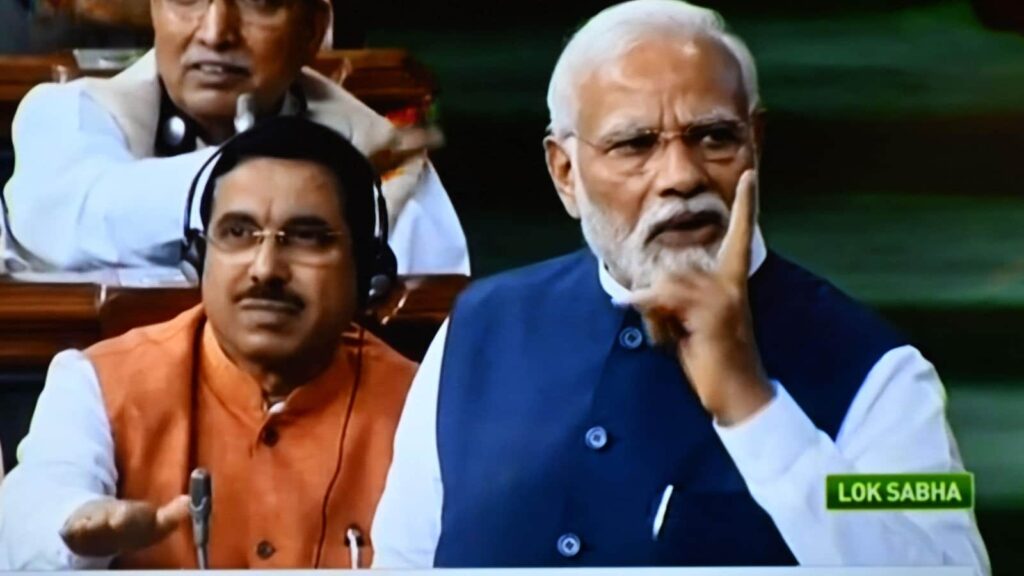The Prime Minister did speak on Manipur in the Lok Sabha — the demand from the Opposition that has roiled the monsoon session of Parliament that ends on Friday, allowing key laws to be passed with no discussion — but the Opposition benches were empty, with the opposition parties having walked out minutes before, assuming, after around 90 minutes of the speech, that he was unlikely to touch upon the issue. For some time before walking out, they raised a chorus that went “Manipur, Manipur…” even as the Prime Minister was speaking.
But as miscalculations go, this was a minor one compared to what now seems to be a bigger one — the decision to seek a no-confidence motion expressly for the purpose of getting the PM to speak. Over three days, that gave Prime Minister Narendra Modi’s National Democratic Alliance an opportunity to field speakers who attacked the opposition politically — including by pointing out inconsistencies in the INDIA grouping — and tout their government’s achievements. And it also gave Modi an opportunity to attack the Opposition, especially the Congress, which he held responsible for the origin of the strife not just in Manipur but the entire Northeast, and to also make a statement about the outcome of the 2024 elections. He would return for a third term, Modi said, and ensure that India became the third largest economy in the world in that period. He also said India would be a developed country by 2047, its hundredth year of independence, and on the strength of the work of all Indians.
It was home minister Amit Shah who spoke extensively on the situation in Manipur during the debate on the motion — an offer that was made to the opposition parties ahead of the session — which raises the question of what it (the motion) achieved. While it may have achieved the political objective of showcasing Opposition unity, perhaps the country would have been better served if the opposition parties had instead come together to discuss and debate some of the important legislations that were passed by Parliament. This is a session that saw India getting a privacy law. It is a session that saw the contours of environment regulation changing (after almost 40 years). And these were just two among a handful of bills that were passed that will have a far-reaching and long-term impact on the nation and its people.
Experience unrestricted digital access with HT Premium
Explore amazing offers on HT + Economist


